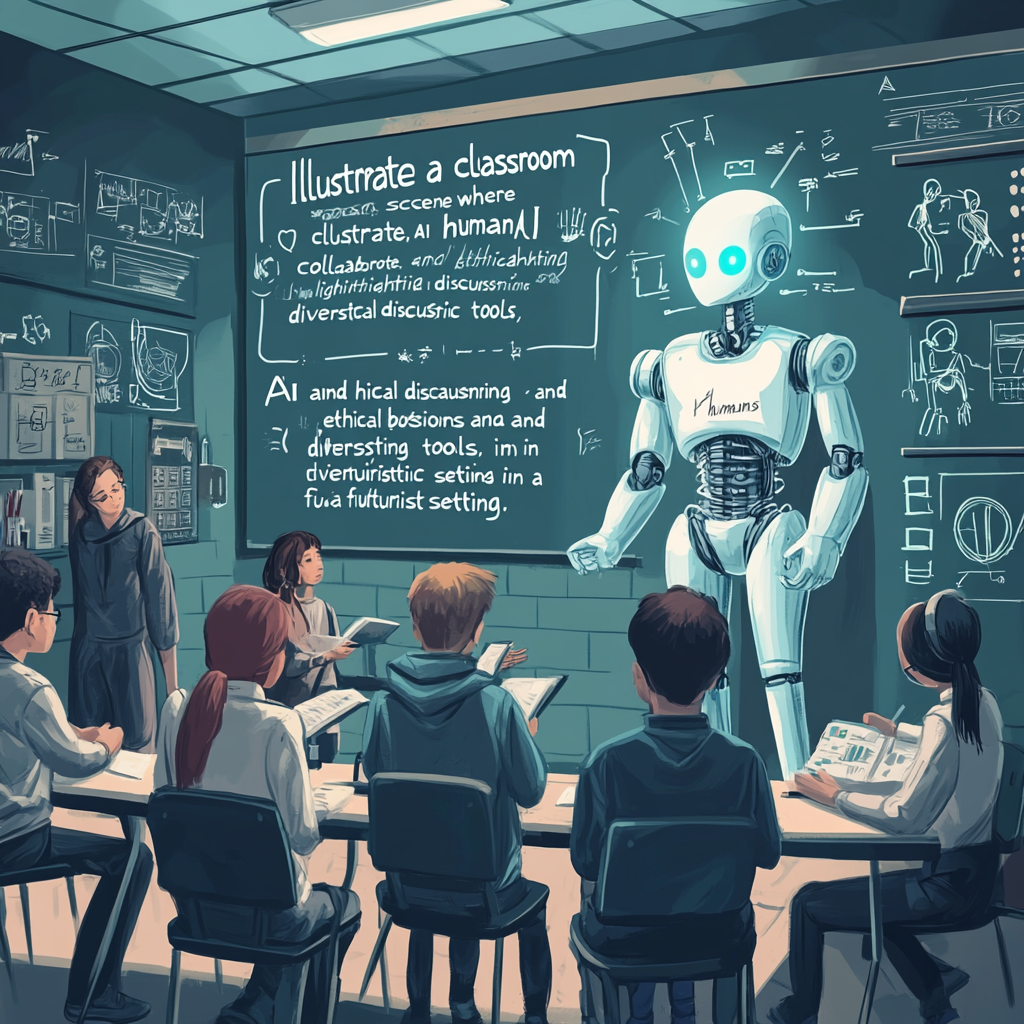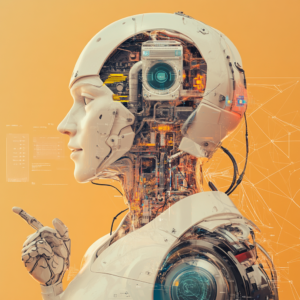
“A.I. in Education: Exploring Humanity, Ethics, and Accessibility at the University of Michigan”
Are Androids Dreaming of Electric Sheep? Diving into A.I. and Humanity in a Michigan Classroom
When we think of Philip K. Dick’s brain-bending masterpiece "Do Androids Dream of Electric Sheep?", we often get lost in the labyrinth of questions surrounding humanity, identity, and reality. It's a riveting rabbit hole that captures the imagination. Fast forward to today, and this discussion is no longer confined to the pages of science fiction literature. It’s taking root in classrooms, particularly at the University of Michigan, where educators are meticulously unearthing what it means to be human in an age of A.I.
Generative A.I. Takes the Educational Stage
Enter generative A.I. – not just another buzzword, but a game changer. Platforms like ChatGPT are shaking the very foundations of education. At the University of Michigan-Flint, they’re not merely glossing over this technology; they're jumping in headfirst with their free online course, "Generative A.I. Prompt Literacy." It's like giving students the keys to their own A.I. kingdom.
What can you expect from this adventurous course? Let’s break it down:
-
Crafting the Perfect Prompt: Think of generative A.I. as a powerful genie. But you better make your wishes (or prompts) crystal clear if you want results that’ll impress. This course teaches the art of effective prompting, honing skills that can unleash the real magic of A.I.
-
Bridging the Digital Divide: Here’s the kicker: they’re not just teaching privileged students. This course is about making A.I. accessible to everyone. By addressing equity and accessibility, the course opens doors for those who otherwise wouldn’t have the chance to step into the tech-savvy future.
-
From Classroom to Real-World: The course doesn’t just stick to theory. Students are encouraged to apply generative A.I. in real-life contexts, freeing them from mundane tasks so they can focus on what truly matters.
Navigating the Ethical Labyrinth
But let’s not kid ourselves; integrating A.I. into the educational system isn’t a walk in the park. It brings along its own set of ethical baggage. The University of Michigan addresses these complexities with their "Generative A.I. Teach-Out" on Coursera, shedding light on what it means to wield A.I. responsibly. Some points to ponder:
-
The Ethics Equation: Discussions on authorship, ownership, and regulation flow throughout this course. In a world where machines can produce, understanding the ethical ramifications becomes crucial.
-
Authentic Assessments: Educators are innovating how they assess learning outcomes by incorporating A.I.-generated content. It’s not just about regurgitating info; students will critically engage with content, identifying A.I.’s strengths and weaknesses. Think of it as putting A.I. under a magnifying glass.
-
Addressing Inclusivity: The digital divide poses a significant threat. Many of the biases ingrained in A.I. simply reflect the data it learns from. As such, the risk of exacerbating socio-economic inequities is real. The University is making strides to educate a wide audience, leveling the playing field in A.I. literacy.
Integrating A.I. with Pedagogy
Now, let’s shift gears and see how teachers are weaving this technology into their teaching fabric. Yes, there’s a generous dose of creativity involved:
-
Essential Guide for Educators: Michigan Virtual has stepped up with a course titled "An Essential Guide to A.I. for Educators." It’s like a cheat sheet for teachers—equipping them with the know-how to incorporate A.I. efficiently, saving time on the nitty-gritty of lesson planning.
-
Augmented Education: The term "augmented education" is becoming the new cool kid on the block. Here, A.I. isn’t a substitute; it’s a collaborative partner in enhancing the learning experience. A significant reference point is the insightful book "Augmented Education in the Global Age" that envisions a future where technology and human interaction are beautifully intertwined.
Peering into the Future of A.I. in Learning
As we plunge deeper into the A.I. age, its role in education continues to swirl around hotly contested debates. What’s crucial is defining the expectations educators hold. Here are some stimulating takeaways:
-
Setting Clear Boundaries: As the use of generative A.I. in coursework becomes a norm, it’s vital for educators to lay down the law. Clear communication about acceptable tools and how to credit A.I. contributions is a must to avoid academic chaos.
-
Fostering Critical Thinking: What’s the point of learning A.I. if students don’t understand the underlying principles? Encouraging critical reflection on A.I. applications should be a cornerstone of this education, linking theory to real-world implications.
Wrapping It Up
The journey into the realm of A.I. in education is not straightforward. As the educators at the University of Michigan and beyond navigate these uncharted waters, they unearth both the potential and the perils of A.I. technology. It’s evident that while A.I. has the potential to enhance our learning experiences, it also brings a whirlwind of ethical considerations that require careful attention.
Want to stay up to date with the latest news on neural networks and automation? Subscribe to our Telegram channel: @ethicadvizor
Don't miss out—understanding A.I. isn’t just for tech wizards anymore; it’s becoming essential knowledge for educators and learners alike. So hop on this A.I. train and buckle up; the future of education is being reshaped in real-time, and you don’t want to be left behind!

